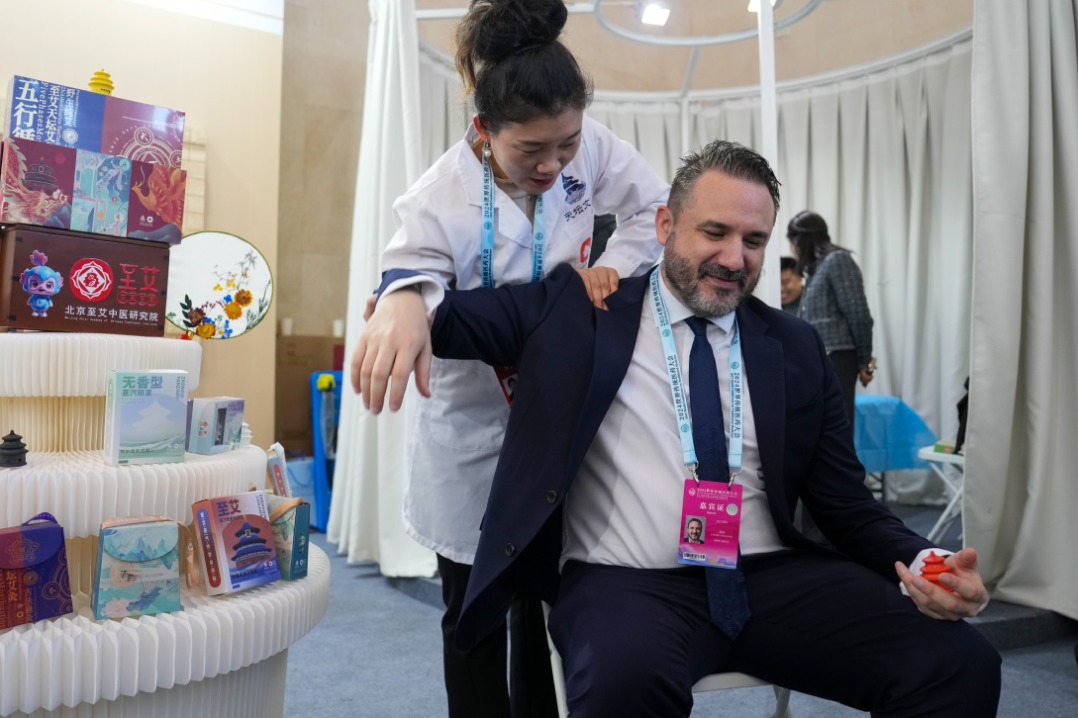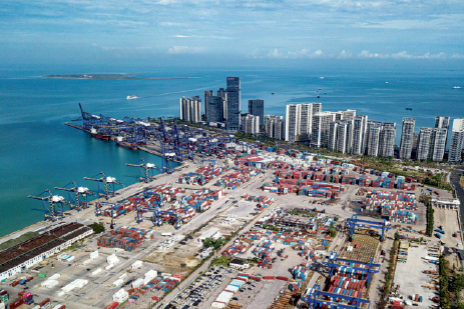China's zero-tariff policy boon for least developed countries
Nation rolling out other steps designed to draw additional foreign investment


BEIJING — Amadou Thera, a Malian businessman, takes great pleasure in showcasing the shea butter skincare creams produced by his workshop at various international fairs in China, where he always finds new clients.
"China's international fairs are really great platforms for African enterprises to find new opportunities, and purchasers usually consider our agricultural products to be good value for the money, thanks to China's zero-tariff treatment on most of them," said Thera.
More people are looking forward to sharing similar experiences like Thera's in the future, as since the beginning of December, China has been granting zero-tariff treatment for all tariff product categories to all least developed countries that have diplomatic relations with China.
The policy, which will make China the first major developing country to implement such an initiative, marks the latest move of the world's second-largest economy to open up its vast market and share growth opportunities with the rest of the world.
To advance institutional opening-up, the country issued a guideline in October to promote high-standard international economic and trade practices piloted in certain free trade zones in a wider region.
China also continues to roll out policies to nurture a more open environment for foreign investors. Last month, the country pledged to build the Suzhou Industrial Park in East China's Jiangsu province into a globally attractive two-way open hub.
Multinationals will be encouraged to establish research and development, sales and distribution centers in the industrial park. Furthermore, qualified medical institutions will be encouraged to conduct clinical research in cutting-edge biopharmaceutical fields such as cell immunity, stem cells and gene therapies.
In the same month, the new edition of the national negative list for foreign investment took effect, scrapping the two remaining items in the manufacturing sector on the previous list.
The items on the latest negative list, which outlines fields off-limits to foreign investors, have been further reduced to 29.
This fully demonstrates China's active willingness to expand mutual benefits and its proactive policy of supporting economic globalization, said Jin Xiandong, an official with the National Development and Reform Commission, adding that further efforts will be made to improve the level of foreign investment liberalization and facilitation, and to optimize services for foreign-invested enterprises.
In addition to the manufacturing sector, China is also pushing forward broader and deeper opening-up in the services sector.
China announced in September that it would allow the establishment of wholly foreign-owned hospitals in certain cities and regions, including Shenzhen, Guangdong province, Beijing and throughout the island province of Hainan.
In October, the country decided to allow foreign investors to operate wholly owned businesses such as internet data centers and engage in online data processing and transaction processing in certain areas as part of a pilot program to expand opening-up in value-added telecom services.
The country's opening-up efforts have made it a magnet for foreign investors. A total of 46,893 new foreign-invested firms were established across China in the first 10 months, up 11.8 percent year-on-year. Notably, FDI inflows into medical equipment and instrument manufacturing surged 61.7 percent, while inflows into computer and office device manufacturing grew by 48.8 percent.
Opening-up to the outside world is not just a matter of "opening the door". More importantly, it requires actively aligning with international economic and trade regulations as well as other high-standard rules, said Zhang Bin, deputy director of the Institute of World Economics and Politics at the Chinese Academy of Social Sciences.
Zhang underlined the need to enhance synergy between domestic and international markets, as well as resources, to constantly cultivate and consolidate new advantages in international economic cooperation and competition.
Xinhua



































